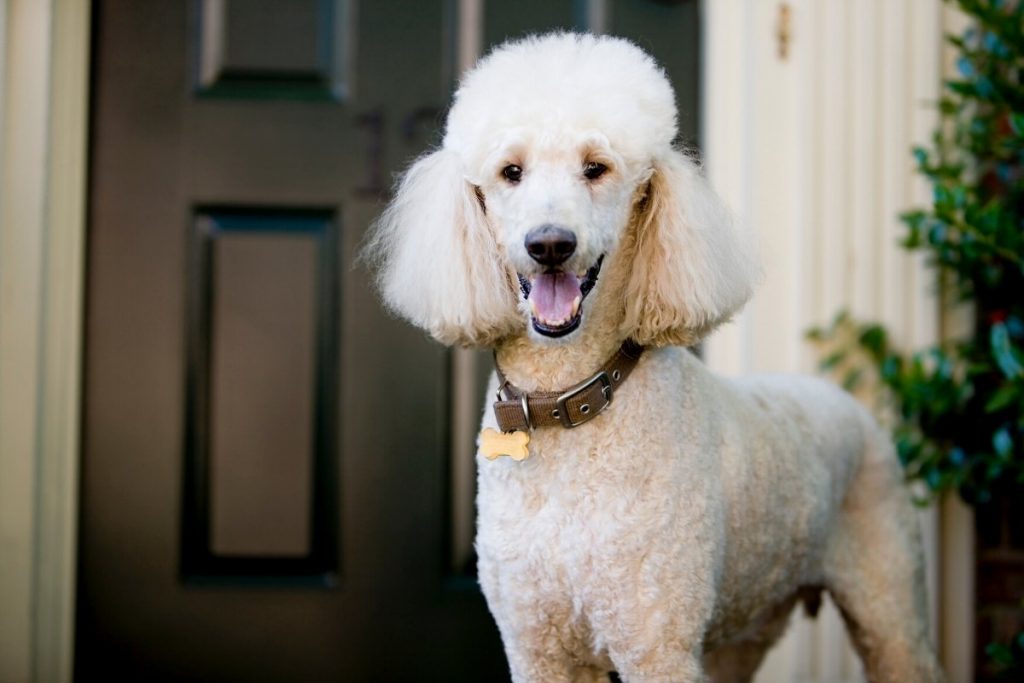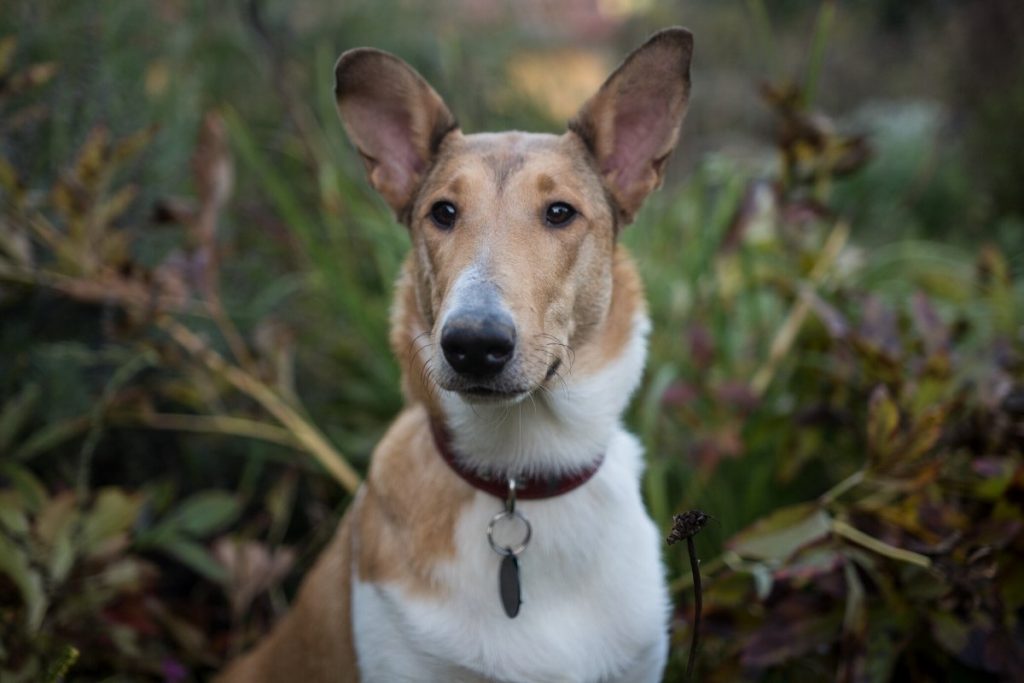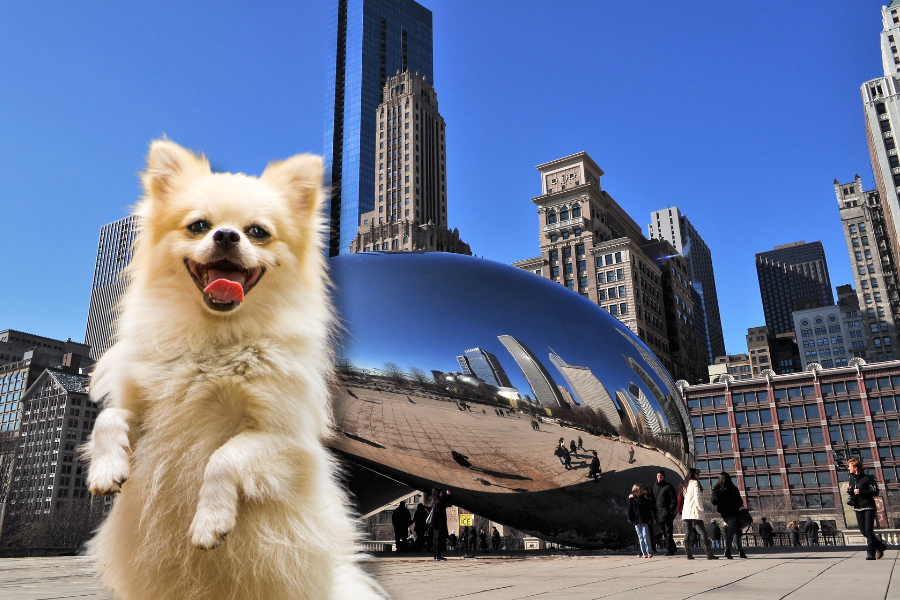
What Are the Best Psychiatric Service Dog Breeds?
- Published on:
- By: ASP Team
If you are considering training a Service Dog to help with your mental health disability, there are some key details you will need to work out. Perhaps one of the most pressing is that of which breed will best serve your mental health needs. There are a variety of dog breeds that hold the capacity for effective task training. As we know, most dogs innately have the “unconditional love” piece of the puzzle down pat, but different breeds of dogs have particular skills and behavioral temperaments that are needed for someone who has a mental illness. When it comes to psychiatric disabilities, some breeds are also better suited for certain disorders than others. So what are the best Psychiatric Service Dog breeds? There are four specific breeds, known as the “Fab Four,” that hold the best Service Dog compatibility title. These breeds are Labrador Retrievers, Golden Retrievers, Standard Poodles, and Collies. Let’s explore each of them to find out more!

What makes Labrador Retrievers great service animals?
Labrador Retrievers are highly intelligent and extremely friendly, a perfect combination for any service dog breed. They can learn new tasks quickly and are consciously well behaved in public settings. Labs tend to develop strong bonds with their owners, which means they will love being together constantly, no matter how busy or uneventful the day is. Labradors are wonderful for individuals whose mental health symptoms may cause some mobility impairment. Labs were initially bred to assist with fishing and to retrieve wounded birds after their owner’s hunting excursions. As a result, they have naturally gentle jaws and soft mouths, which allow them to pick up objects without damaging them. Bringing items such as water bottles, cell phones, medications, or other necessary equipment should cause no concern with these pups.
Labrador Retrievers have been identified as the number one dog breed for children with Autism. They have an extremely calming demeanor which helps to diffuse behavioral outbursts quite effectively. Labradors’ loyalty brings a sense of assurance and security that not every dog is able to convey. Labradors also have extra keen senses. This advantage helps them detect even the slightest signal of oncoming mental health events, such as panic attacks or disassociative episodes. These senses also aid them in providing distinctive, easy to interpret alerts to their owners.
Size Guide :
General Height – 22 inches to 24 inches
Get Your ESA Today
ATTENTION
Due to the new Department of Transportation (DOT) policy, Emotional Support Animals are NO longer allowed to fly in airplane cabins for free. However, Psychiatric Service Dogs are eligible.

Can Golden Retrievers be good service animals too?
Golden Retrievers have very similar characteristics to Labs. They are smart, friendly, easy to train, and are work-oriented. Goldens are a larger breed, but they physically appear gentle and sweet, which can help dispel trepidations for individuals who aren’t used to canines (especially children). Goldens are ideal for emotional support work, making them one of the best Psychiatric Service Dog breeds. They do well with PTSD and chronic anxiety sufferers. They look soft and cuddly but are also surprisingly strong! Goldens can handle more physical work as necessary and are not afraid to hold their stance while performing tasks such as social buffering.
Golden Retrievers are known for their reliability, and you definitely want a dog that’s predictable while working. It’s been said that your Service Dog should respond “on time, the first time, every time.” You don’t want to worry about whether or not they will consistently perform on command. With mental health disabilities, your dog’s need to complete a task is rooted in high-tension situations. A Psychiatric Service Dog needs to be able to respond under stress. Golden Retrievers are not easily distracted or drawn away from their duties which is a major plus. Though they tend to shed quite a bit, these beautiful dogs are not challenging to care for and thrive being caretakers themselves.
Size Guide :
General Height – 22 inches to 24 inches
Weight – 64 lbs to 79 lbs (male) / 55 lbs to 71 lbs (female)
What about Standard Poodles? Can they be service animals?
Poodles are a vastly underestimated dog breed. Many instinctively associate them with show dogs or find them less aesthetically pleasing to own, but Poodles do not disappoint when given a chance! This breed often does better with more assertive owners, as they are stronger, more independent thinkers. They aren’t always easily coerced, which is both a blessing and a potential problem with Service Dog training. It may take longer to get them on board with task performance, but they are less likely to waver or be distracted once they commit. Interestingly, Poodles are known to prefer human company to that of other canines! If you choose a Poodle, you can be sure that they will develop a close and sincere bond with you.

Another plus of the Poodle breeds is that they are considered hypoallergenic. They have a single layer of hair instead of fur and therefore do not shed. Poodles require frequent grooming to prevent matting, but it’s a worthwhile trade-off for those who are averse to constant fur cleanup! Regularity is helpful for this breed, but they do adapt well under sudden pressure. If you are looking for a Psychiatric Service Dog to keep you on a routine, a Poodle would be a wise choice. Due to their desire for consistency, Poodles are great for managing symptoms of chronic depression. They are also known for their energetic yet serious personalities. This desire to be active yet stay within set boundaries proves beneficial for those managing ADHD.
Poodles come in 3 sizes, though smaller sizes may not be suitable for particular Service Dog tasks. It would be best if you considered the work you will need your companion to perform before choosing which variety to bring home.
Size Guide :
Standard – 15 inches to 22 inches / 45 lbs to 70 lbs
Minature – 10 inches up to 15 inches / 15 lbs to 17 lbs
Toy – Under 10 inches / 6 lbs to 9 lbs

How are Collies (Rough/Smooth) as service animals?
Last but certainly not least, we have the Collie. They rank highly for intelligence and trainability. Due to their origination as herding dogs, this breed is dependable, has great stamina, and a noticeable desire to work hard. Through their history as a shepherd, Collies developed the ability to memorize objects and scents, which make them sensitive to sounds and smells/chemical changes. They make good alert dogs for people with sleep disorders or those who are at risk for self-harm. These mental health symptoms often occur suddenly and quickly, but early detection from a Service Dog can help to avoid additional trauma or irreversible outcomes. Collies also have the sensitivity to detect minor behavioral changes that may warn them of dangers. This is useful for keeping sheep safe but is also useful on a human level! For example, if their owner displays body language or emotional fluctuations (such as hand signals or even a raised eyebrow), the Collie will easily perceive it.
Their medium stature and energetic work ethic enable Collies to serve many types of psychological disabilities, including Autism, PTSD, ADHD, social anxiety, and other invisible mental health struggles. This breed has much affection for the humans they love and is very protective. Sometimes, they can be less amicable towards strangers and children. Depending on your needs, that could be good news. If you have extensive mental health challenges, your Service Dog will need to attend to you without tempting distractions from others in public settings. The Collie can learn vocabulary words at an impressive rate of speed and often masters the content of Service Dog training very efficiently
Size Guide :
Height – Up to 22 inches
Weight – 30 lbs to 45 lbs

These four breeds are regularly championed as the “best” for Service Dog work, but of course, many others are able to fulfill this calling. The mixed breeds of Goldendoodle and Labradoodle are often a popular choice. For those living in smaller spaces, the Pomeranian and Lhasa Apso are at the top of the list.
No matter which dog you are leaning towards, remember to focus on the need, not the breed. You should always try to find a dog who’s well-suited to relieve your individual symptoms and work with you, regardless of your favorite breeds. This is not a choice that should be rushed. The right Psychiatric Service Dog investment will hopefully benefit you for years to come! The goal of this general information was to give you a starting point, but if you are ready to take the next step into Service Dog ownership, American Service Pets is only a click away from assisting you further.

The benefits of an Emotional Support Animal certification and a Psychiatric Service Dog certification are drastically different. Fortunately for you, American Service Pets’ network of active board certified doctor or other licensed mental health providers can help you find the right path to certification. To find out whether you need an ESA or PSD letter, take our easy, three-step Pet Owner Survey!
More Great Resources




